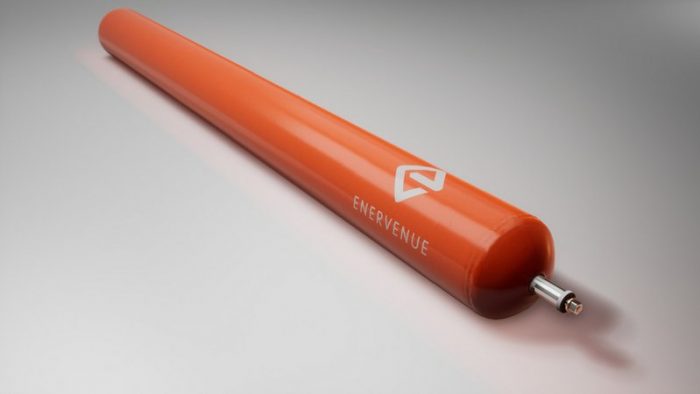
EnerVenue, the company trying to scale metal-hydrogen batteries (an alternative to lithium-based batteries) for standalone energy storage projects, is closer than ever with its second-generation product launch, Energy Storage Vessels (ESVs).
“Our new ESVs deliver a meaningful upgrade to the customization and ease with which customers and partners can plan—and expand—their utilization of our transformative and proven battery technology,” said Majid Keshavarz, Chief Technology Officer, EnerVenue. “As the applications using our technology have grown, we wanted to ensure we had a product that could match almost any use case. ESVs package EnerVenue’s incredible technology into a more flexible and efficient solution that we’re excited to bring to market.”
The company is already committed to providing 7 GWh of ESVs as part of existing agreements with customers, including previously announced deals with Pine Gate Renewables, Sonnell Power Solutions, and Nicon-Industries-affiliated Green Energy Renewable Solutions. EnerVenue will begin shipping ESVs to customers in 2023.
For a refresher on metal-hydrogen and the EnerVenue approach, check out our Pitch video on it from two years ago:
The gist is the technology was proven, based on decades of use with NASA and other aerospace applications, but EnerVenue needed to bring material costs way down for a grid-scale, commercial and industrial battery solution.
Overview of ESVs
The new ESV solution might get them there. Customers can cycle ESVs up to three times per day without rest, and the batteries have an expected lifetime of 30 years / 30,000 cycles. ESVs continue to deliver 86% capacity beyond 30,000 cycles, providing a second asset life that lithium-ion batteries cannot match.
EnerVenue says ESVs significantly reduce OPEX and CAPEX costs compared to li-ion by eliminating the need for expensive augmentations, excessive oversizing, or extensive maintenance during a project’s lifetime.
The solution’s metal-hydrogen technology further differentiates from li-ion by offering improved fire safety. ESVs have been tested and demonstrate no thermal runaway or propagation risk, and there is no need for costly, preventative fire suppression systems.
ESVs can thrive even in extreme temperatures and other environments where grid-scale li-ion batteries struggle. The product also features flexible charge/discharge rates and can discharge to 100% (deep discharges permanently damage li-ion batteries).
EnerVenue backs its ESVs with the Capacity Assurance extended warranty. Launched in October and the longest and simplest warranty of its kind, customers selecting Capacity Assurance are guaranteed 88% capacity for up to 20 years/20,000 cycles.
— Solar Builder magazine

Leave a Reply
You must be logged in to post a comment.